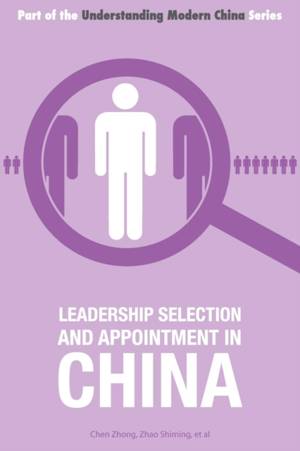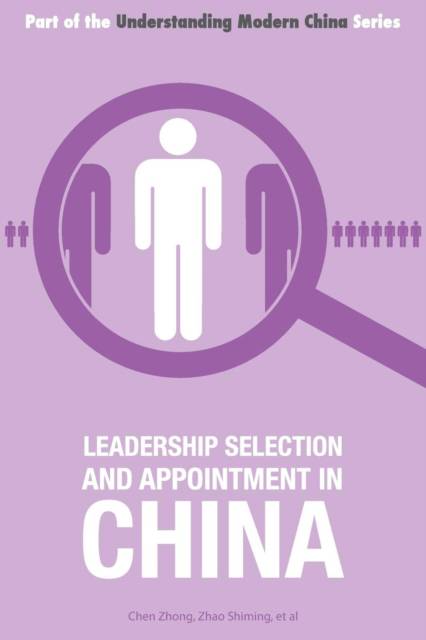
- Afhalen na 1 uur in een winkel met voorraad
- Gratis thuislevering in België vanaf € 30
- Ruim aanbod met 7 miljoen producten
- Afhalen na 1 uur in een winkel met voorraad
- Gratis thuislevering in België vanaf € 30
- Ruim aanbod met 7 miljoen producten
Omschrijving
Cadres (senior party or government officials) have played a significant role throughout Chinese history and particularly over the past century. They were instrumental in helping the Communist Party of China (CPC) come to power in 1949 and in implementing the reform and opening-up process that began in 1978. This elite group in Chinese society has been pivotal in enabling the CPC to bring about social and economic development.
The imperial examination system in the Sui and Tang dynasties was the world's earliest recognized cadre selection system, and it has deeply influenced the formation of a civil service in the UK and other western countries. Since the establishment of the New China, the selection and appointment of cadres have undergone many changes designed to make the process more democratic, open and competitive.
This book provides a fascinating insight into how China's leaders are chosen. It explains the basic standards, guiding principles and procedures that are used in the process, and details the examination and evaluation systems, along with the supervisory and disciplinary measures that are deployed. It gives readers a comprehensive and systematic understanding of how China's leaders are selected and appointed.
Specificaties
Betrokkenen
- Auteur(s):
- Uitgeverij:
Inhoud
- Aantal bladzijden:
- 182
- Taal:
- Engels
- Reeks:
- Reeksnummer:
- nr. 8
Eigenschappen
- Productcode (EAN):
- 9781910760192
- Verschijningsdatum:
- 22/07/2017
- Uitvoering:
- Paperback
- Formaat:
- Trade paperback (VS)
- Afmetingen:
- 156 mm x 234 mm
- Gewicht:
- 264 g

Alleen bij Standaard Boekhandel
Beoordelingen
We publiceren alleen reviews die voldoen aan de voorwaarden voor reviews. Bekijk onze voorwaarden voor reviews.











